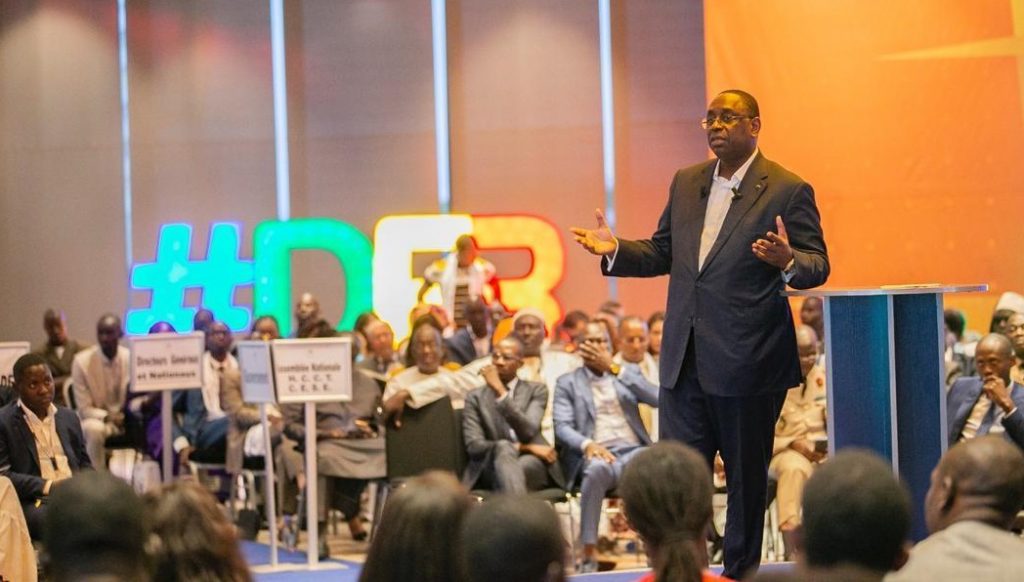LG’s 100-Inch QNED evo AI TV Redefines Big-Screen Viewing in South Africa In a bold leap forward for home entertainment, LG Electronics South Africa…
‘Senegal Startup Act a result of bottom-up consultation process’

Senegal in December became only the second country in Africa after Tunisia to pass a startup act. How did they do it?
It comes after Senegal’s National Assembly passed law 17/2019 on 27 December last year under the leadership of Digital Economy Ministry Ndèye Tické Ndiaye. The law is better known as the Senegal Startup Act (opens as a PDF — in French only).
It follows Tunisia’s startup act which was passed in 2018 (see this story).
Senegal’s startup act defines what a startup is, to allow such firms access to a number of incentive measures. Regulations must still be passed that specify how such firms are to be defined.
A consultation process, involving all actors in the sector was key to getting the Senegal Startup Act passed made law
Alongside the act, provisions amending the general tax code were introduced in the 2020 Finance Law in parallel with the adoption of the Startup Act.
These provisions allow for among other things, the exemption for startups from certain taxes for the first three years and the reduction in registration fees for the creation of companies, from CFA25 000 to CFA10 000 (about $41, to $16.50).
‘Co-creation process’
So, how did Senegal get it right to pass such an act?
By following a bottom-up consultation process, involving all actors in the tech startup and digital innovation sector — argues Kinaya Ventures co-founder Eva Sow Ebion, one of the champions behind the new act.
While Sow Ebion, who has been involved in Senegal’s tech sector since 2011, was a key player in driving the initiative, she puts the success in getting the act from proposal to draft to being passed, to everyone working together.
“This co-creation process has given us the opportunity to have ownership from all government departments,” commented Sow Ebion in a call with Ventureburn.
Sow Ebion said it all started at a gathering of representatives of innovative hubs in Kigali, Rwanda in 2016 which resulted in the setting up of i4Policy, a pan-African which represents over 160 innovation hubs in 45 countries across Africa and which stresses the importance of the co-creation process when developing innovation policies.
As a member of the i4Policy secretariat, Sow Ebion brought the process back to Senegal to address public policy for entrepreneurs and innovation.
Political will
As luck would have it President Macky Sall (pictured above, addressing ecosystem roleplayers in a 2018 meeting), was himself interested in promoting the digital economy.
Sow Ebion then met with government ministries and innovation hubs to set up a coalition that could work together in drafting the act. Second to this she helped organise a policy hackathon in Dakar, which was supported by the World Bank.
Following 19 months of engagement between 60 members from nine Senegalese innovation hubs and 20 partner organisations, the various innovation actors then began engaging with a number of government representatives, including among others the tax authority, and education and finance ministry.
The country’s digital economy minister Ndèye Tické Ndiay helped drive the process, on behalf of the government.
The co-creation body then identified one startup that could represent each of the major challenges that startups faced — such as tax, finances, regulation and difficulty with exports.
The engagements also included online consultations via chatbots, with nearly 500 people, including those from the Senegalese diaspora, and a townhall meeting in Dakar in 2018 attended by 1000 people.
The final text was submitted in July 2019 to the Presidency for validation, before the National Assembly voted the act into law in December.
Other African countries could take a leaf from Senegal’s co-creation process.
But it’s not just the process they could learn from, many will be looking closely at the West African country with the question — can a startup act indeed propel the country’s digital firms to new heights?
Read more: Here are the 20 measures the Tunisia Startup Act aims to promote
Read more: How Tunisia’s Startup Act is a blueprint for other African policy makers
Featured image: Senegalese president Macky Sall meeting with ecosystem roleplayers in Dakar on 24 November 2018 (Supplied)

